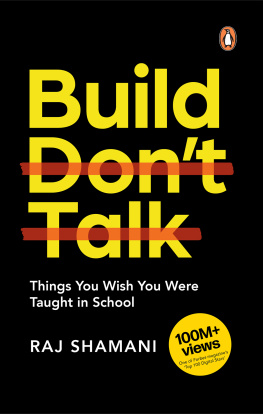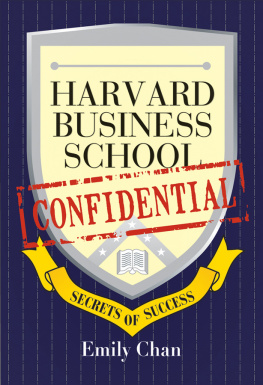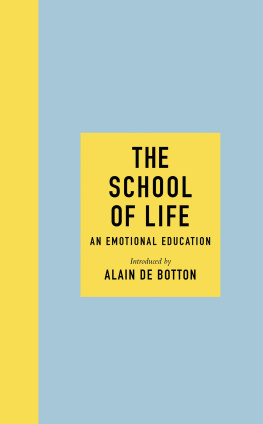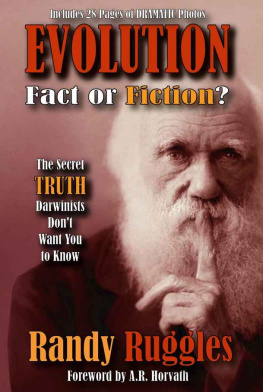Selwood - Spies, sadists and sorcerers: the history you werent taught in school
Here you can read online Selwood - Spies, sadists and sorcerers: the history you werent taught in school full text of the book (entire story) in english for free. Download pdf and epub, get meaning, cover and reviews about this ebook. City: United Kingdom, year: 2015, publisher: Crux Publishing Ltd, genre: Religion. Description of the work, (preface) as well as reviews are available. Best literature library LitArk.com created for fans of good reading and offers a wide selection of genres:
Romance novel
Science fiction
Adventure
Detective
Science
History
Home and family
Prose
Art
Politics
Computer
Non-fiction
Religion
Business
Children
Humor
Choose a favorite category and find really read worthwhile books. Enjoy immersion in the world of imagination, feel the emotions of the characters or learn something new for yourself, make an fascinating discovery.
Spies, sadists and sorcerers: the history you werent taught in school: summary, description and annotation
We offer to read an annotation, description, summary or preface (depends on what the author of the book "Spies, sadists and sorcerers: the history you werent taught in school" wrote himself). If you haven't found the necessary information about the book — write in the comments, we will try to find it.
Selwood: author's other books
Who wrote Spies, sadists and sorcerers: the history you werent taught in school? Find out the surname, the name of the author of the book and a list of all author's works by series.
Spies, sadists and sorcerers: the history you werent taught in school — read online for free the complete book (whole text) full work
Below is the text of the book, divided by pages. System saving the place of the last page read, allows you to conveniently read the book "Spies, sadists and sorcerers: the history you werent taught in school" online for free, without having to search again every time where you left off. Put a bookmark, and you can go to the page where you finished reading at any time.
Font size:
Interval:
Bookmark:

SPIES, SADISTS
AND
SORCERERS
The history you werent taught at school
Dominic Selwood

Contents
Though a good deal is too strange to be believed, nothing is too strange to have happened.
Thomas Hardy
The Personal Notebooks of Thomas Hardy, 1871
About the Author
Dominic Selwood was awarded his masters in history from the Sorbonne in Paris and his doctorate from Oxford. He is a Fellow of the Royal Historical Society and a Fellow of the Royal Society of Arts. His previous books include Knights of the Cloister, a university textbook on the Knights Templar, and The Sword of Moses, an Amazon bestselling historical crypto-thriller.
Twitter: @dominicselwood
Website: www.dominicselwood.com
FOREWORD
Winston Churchill once explained that history would be kind to him, because he intended to write it himself. Behind the joke, he understood a simple truth. So did Adolf Hitler, who insisted that people would believe anything if it was repeated often enough. Yet another European soldier-politician, Napoleon Bonaparte, was also aware of it when he defined history as a series of untruths people have agreed upon.
What all three knew was that history is not a hard science. It is much more soft and yielding, capable of being defined and shapedor distorted and falsifiedby those who live it, or those who tell it.
There are, of course, fixed historical facts. For instance, in 1215, the barons forced King John to agree Magna Carta. In 1533, King Henry VIII broke from Rome. No one is going to dispute these dates. However, scratch deeper into the surrounding events, and things become less certain.
Take Magna Carta. It is one of the worlds most famous documentsthe Wests charter of liberty and democracy. Except it wasnt. John and the barons disowned it within nine weeks and threw it in the bin, where it lay unused and irrelevant for centuries. Our modern image of its significance was only invented in the 1600s, when it was resurrected and dubiously hoisted as a battle standard for the will of the people against tyranny.
Or take Henrys break from Rome, and the transformation of English religion finished by his children, Edward VI and Elizabeth I. We now know many of the changes were implemented with state terror and violencethe Tudors effectively massacred their people into a new religion. And yet, the Tudor spin machine constructed its story of Henry the benign Renaissance spiritual liberator so well that it is still taught in schools around the world.
In fact, a lot of the history we learn turns out to be only half the picture. Worse, some of it is just plain wrong. There are so many examples. People learn that Constantine the Great made Christianity the state religion of the Roman Empire in AD 313. He didnt. Theodosius I did in AD 380. Everyone knows that Christopher Columbus discovered North America. Except he didnt. He never even set foot there. He found a few islands in the Caribbean, parts of Central America, and the eastern tip of Venezuela, but had no idea North America even existed.
The list of myths we honour as history is enormous. Sometimes we are being purposefully misled. Other times we mislead ourselves, seeing only what we want.
My first history teacher fought in the Battle of Britain. Dozens of lovingly-assembled and painted model Spitfires, Hurricanes, Messerschmitts, Stukas, and the rest hung on invisible cotton threads from the ceiling of his classroom. Looking up instantly transported me to sunny rural airfields in 1940, where gangs of young men puffing pipes were scrambled into the air for the dogfights of their lives. Only in later life did I find out that he had been a flight instructor. It wasnt his fault we all thought he was a fighter ace. We simply saw what we wanted.
Many of the stories in this book are about setting the record straight. Or, at least, presenting another perspective. They first appeared in The Daily Telegraph and The Spectator, designed to give historical context to contemporary events or anniversaries.
I have rewritten some of the titles, and there is a list at the back of where and when each article first appeared. I have left the content of the stories unchanged.
I hope you enjoy them, and thatin their own waythey show history to be so much more than we think.
DKS
London
December 2015
THE ANCIENT WORLD
CHAPTER 1
Flavius Josephus, the Roman destruction of Jerusalem, and two millennia of bloodshed in the Middle East
Flavius Josephus, the famous Jewish historian, saw the Roman armies smash Jerusalem to dust in AD 70. With the Middle East entering another round of profound destruction, this piece explores the Jewish-Roman wars, and the endless conflicts that have plagued the wider region ever since.
Joseph ben Matthias of Jerusalem was one of historys survivors.
When he was born into a privileged, royal, priestly family in AD 37/38 (only a few years after Jesus crucifixion), Jerusalem was a thrivingif somewhat edgycity at the heart of Roman Judaea. By the time he died in AD 100, all of Jerusalem, barring a few sections of wall, had been wiped off the face of the earth so comprehensively that, as he later said, no one would ever know that anyone had lived there.
Joseph, or Josephus as be became known, lived through the most turbulent period of the Jewish-Roman wars, andto the joy of later historiansloved writing as much as he enjoyed talking about himself. He had a very high opinion of everything he did, and clearly saw himself at the centre of events. That said, his boastful personality is inextricably linked to the extraordinary life he led, and to his unique closeness to the decision makers on both sides of the war. Whatever one thinks of his character or actions, his eye for detail and his fascination with the politics driving Rome and Jerusalem make him one of the most immediate and exciting writers of the first century.
As a young man, Josephus saw three main groups around him in Jewish society: Pharisees, Sadducees, and the ascetic Essenes (who produced the Dead Sea Scrolls). He had an inquiring mind, and so spent three years in the desert with an Essene master named Banus, before coming back to civilization and joining the Pharisees, whom he later described as Jewish Stoics. His choice to become a Pharisee speaks volumes about what was to happen later, as the Pharisees were notable for their willingness to live peacefully under Roman rule.
Josephus was known for his memory and knowledge of the Law (i.e., religious practices). Being from an elite family, he was soon drawn into Jerusalems political life. Aged 26, he was dispatched on a sensitive mission to Rome to negotiate the release of some Jewish priests being held hostage. Once there, he managed to arrange an introduction to the beautiful and political Poppaea Sabina, Neros second wife, with whom he made friends, and through whose intervention he succeeded in freeing the prisoners. The whole affair left a deep mark on himespecially the wonders of the Eternal City and its indomitable politico-military machine.
But back in Judaea, things were becoming increasingly tense.
When the Roman consul Pompey had first conquered Judaea in 63 BC, the Romans had been happy for the territory to be ruled by puppet kings (Hasmonean then Herodian). But when the Jews revolted against Herod Archelaus for contracting a bigamous marriage and for his ongoing cruelties, Rome banished him to the south of France and pulled Judaea fully into the empire as an official province.
Font size:
Interval:
Bookmark:
Similar books «Spies, sadists and sorcerers: the history you werent taught in school»
Look at similar books to Spies, sadists and sorcerers: the history you werent taught in school. We have selected literature similar in name and meaning in the hope of providing readers with more options to find new, interesting, not yet read works.
Discussion, reviews of the book Spies, sadists and sorcerers: the history you werent taught in school and just readers' own opinions. Leave your comments, write what you think about the work, its meaning or the main characters. Specify what exactly you liked and what you didn't like, and why you think so.












![Harry Turtledove - Worlds that werent : [novellas of alternate history]](/uploads/posts/book/79050/thumbs/harry-turtledove-worlds-that-weren-t-novellas.jpg)